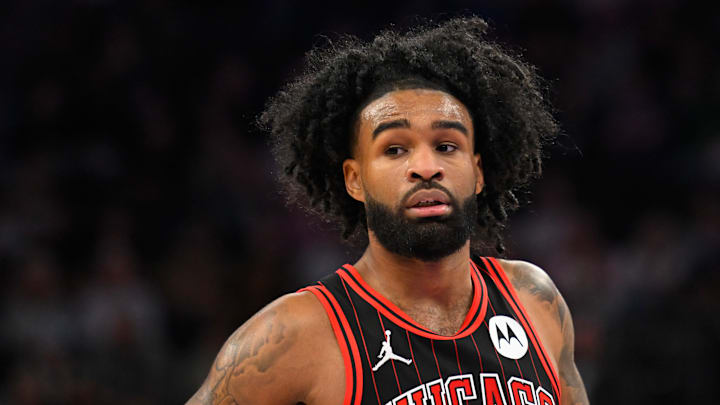Following a 150–147 loss to the Utah Jazz, the Chicago Bulls are now 6–6 on the season and mired in a five-game losing streak. Chicago did get a boost from the return of Coby White, who poured in 27 points, including a game-tying layup at the end of the first overtime. Yet as the final score suggests, offense hasn’t been the Bulls’ problem—it’s their defense that continues to unravel.
Sure, surrendering 150 points in a double-overtime game isn't automatically a defensive catastrophe. Utah shot just 44.1 percent from the field and 36.7 percent from three, hardly numbers that suggest an unstoppable offense. And only 52 of the Jazz’s points came in the paint, roughly in line with the 55.5 Chicago typically gives up there. On the surface, none of these figures seems disastrous.
Still, the Bulls surrendered 127 points in regulation, and they’ve now allowed 121 or more in five straight games, of course, all of them being losses.
Chicago’s defense is a major liability
Since the Bulls’ ill-fated November 7 loss to the Milwaukee Bucks, a game in which they allowed 41 points in the fourth quarter, Chicago ranks 21st in defensive rating and 28th in opponent points per game.
Before the loss to the Bucks, Chicago ranked 11th in defensive rating and 12th in opponent points per game. Their early-season success was driven largely by their defense, particularly their ability to limit opposing stars. The Bulls notably held Cade Cunningham, Paolo Banchero, Trae Young, and Karl-Anthony Towns in check.
During this recent skid, the Bulls have surrendered 41 points to Giannis Antetokounmpo, 29 to Donovan Mitchell, 38 to Victor Wembanyama, and 47 to Lauri Markkanen. It’s apparent that Chicago has struggled to contain opposing stars, especially bigger forwards and centers.
While the Bulls can certainly tighten things up schematically, they lack a realistic solution for slowing down elite scorers. Isaac Okoro is the closest thing they have to a defensive stopper, but at 6-foot-5, his size limits the matchups he can take on. Markkanen, for example, scored 18 points on 6-of-8 shooting against Okoro. That’s disappointing on paper, but Markkanen is a 7-footer—it’s simply not a matchup Chicago can expect Okoro to win.
The Bulls have been in need of an interior stopper for quite some time, a true defensive anchor. But it’s not just a rim protector they’re missing; a long, versatile wing defender would also go a long way. In theory, Chicago has two such players in Matas Buzelis and rookie Noa Essengue. But it’s clear Buzelis isn’t ready for tougher assignments yet, and Essengue hasn't even appeared in a game.
A trade could solve the Bulls’ defensive woes
Therefore, the most viable path to defensive improvement is adding that type of player via trade. Chicago has had a surplus of guards for years, and several of them are on expiring contracts. Packaging one or two of those pieces for a defensive stopper is certainly feasible.
The quality of the defensive wing the Bulls could acquire naturally depends on how much they’re willing to give up. Even so, several compelling options should theoretically be within reach, including Herbert Jones, Tari Eason, P.J. Washington, and Jarace Walker.
The Bulls started the season strong, giving fans early optimism, but their recent struggles have highlighted the need for defensive reinforcements. If Chicago truly wants to contend (and we know they want to), addressing these defensive woes via trade is their clearest path forward.
